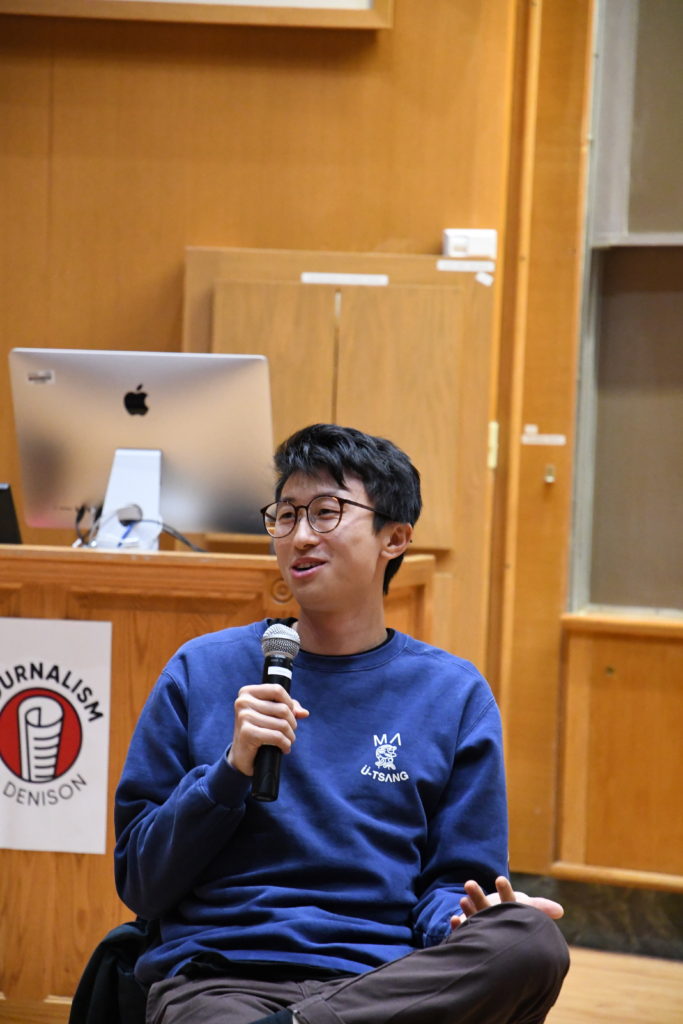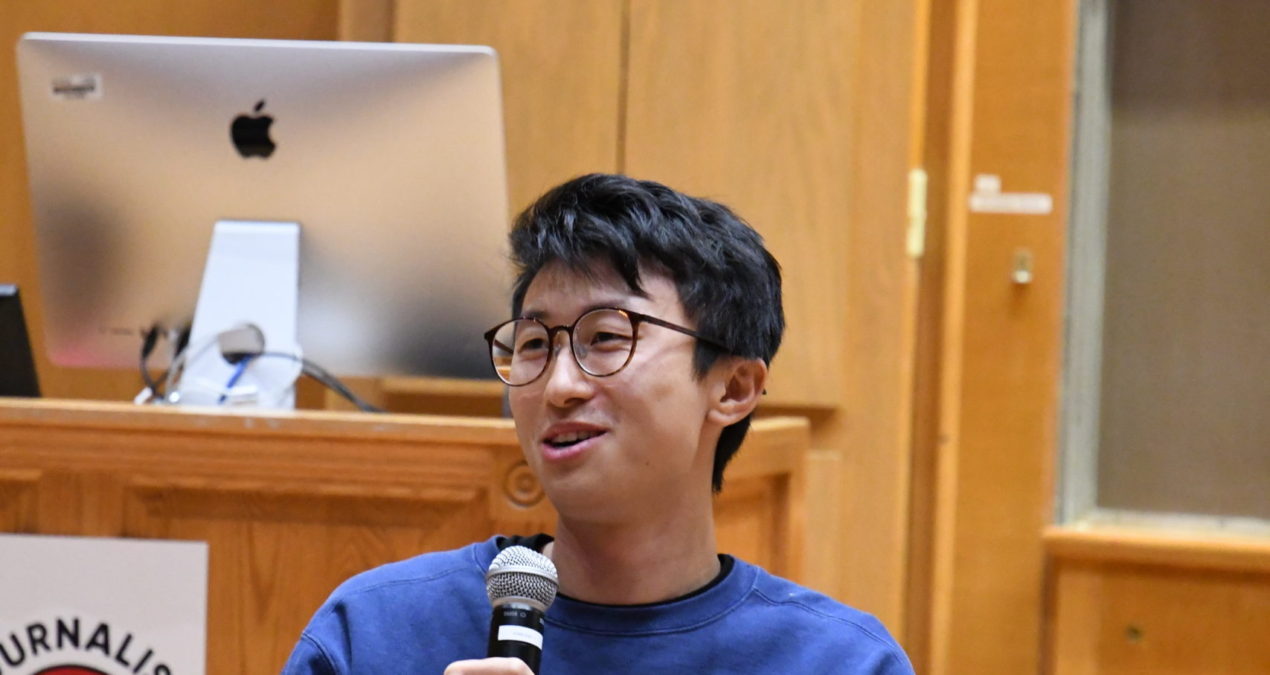WILL ROOSE, Staff Writer—
Filmmaker Bing Liu visited Denison this past week to present his 2018 Oscar-nominated documentary Minding the Gap, taking a Q & A for those interested in the behind-the-scenes process of cinema.

Taking the reigns of director, editor, cinematographer, and producer, Liu weaves a story of generational trauma through three friends growing up in Rockford, Illinois.
Liu uses skateboarding as a motif as the only way of escape for the cast, who are struggling to contend with their abusive upbringings with the challenges of navigating masculinity and their lives as adults.
One notable scene calls attention to a character’s recount of the brutal and aggressive bullying he experienced from his father, only to repeat elements of the same behavior towards his ex-girlfriend.
Another of the major characters, Keire Johnson chooses to forgive his abusive father, focusing on the hope for the future rather than his saddening past
Liu spoke in a moderated question and answer session hosted by the journalism department, as well as an informal conversation with interested students.
“We had to watch Liu’s film Minding the Gap for my class this semester, and I am really glad Denison brought him to campus. He provided a nice amount of clarifying details regarding the documentary and also shared his experiences with filmmaking and storytelling in general,” Sam Fujikawa ‘22 said.
For those who appreciate the value of physical media rather than streaming (of which you can find the film via Hulu), the Criterion Collection released a high-definition remaster just this year with brand-new commentary tracks and features approved by Liu himself.
Apart from releasing his latest documentary All These Sons this past June, Liu reminisced about his previous experience behind the camera as a DP assistant for both short films and high-profile blockbusters such as Jupiter Ascending and Transcendence.
Looking back, Liu felt that the high-pressure work environment of working up to nineteen hours per day has contributed to the recent calls for strike by the IATSE, or The International Alliance of Theatrical Stage Employees.
While being a part of the Hollywood machine seemed to have had it’s difficulties, the indie circuit for documentaries has also proved a challenge among the ethical decisions made during production.
Liu recalled fellow filmmaker Kirsten Johnson (Dick Johnson is Dead) having to completely scrap the development of a project due to her subjects suddenly declining to participate.
The film industry is an unsettling labyrinth of risk and doubt, and Liu’s insightful anecdotes make the path just that much easier for introspective students.

